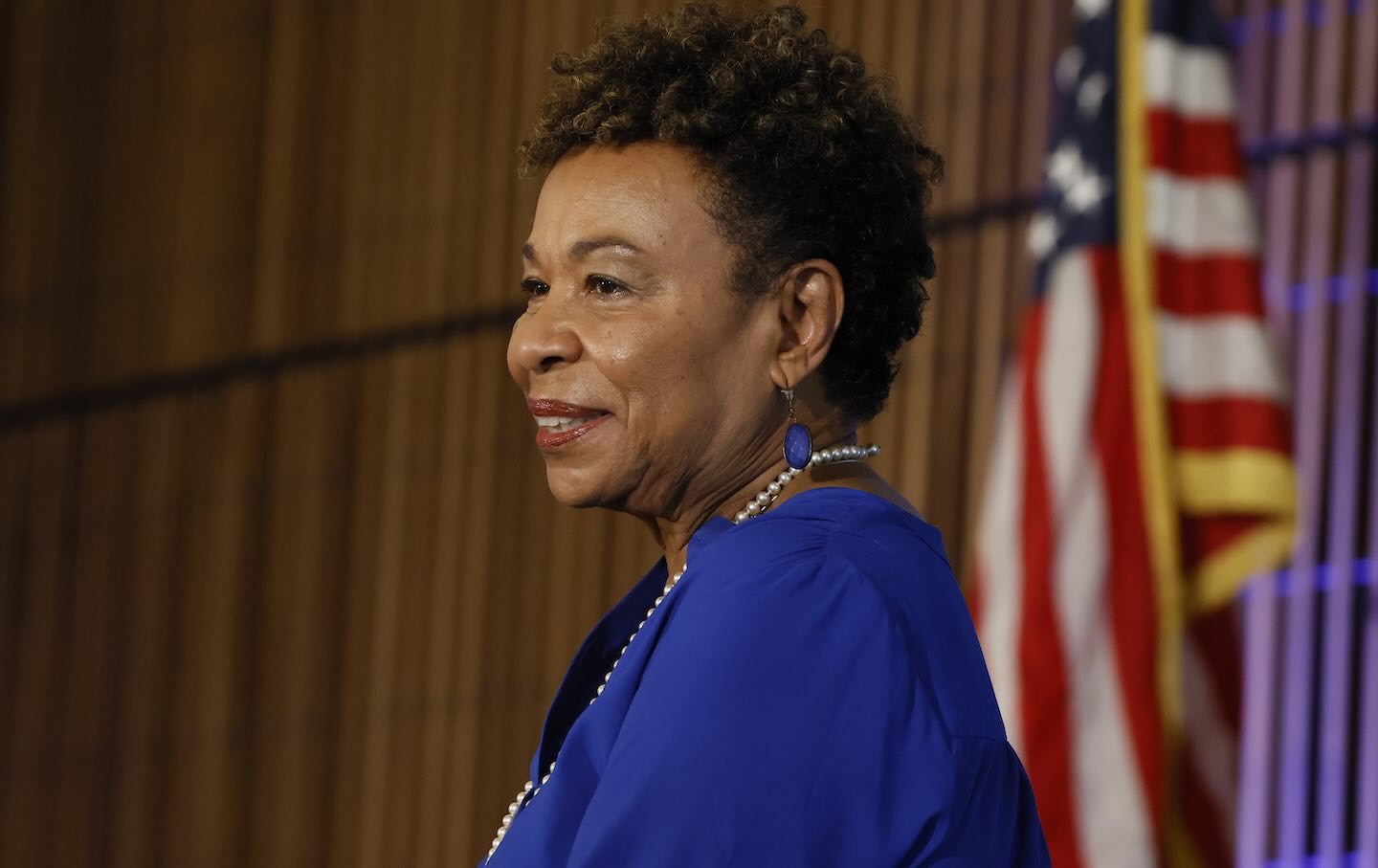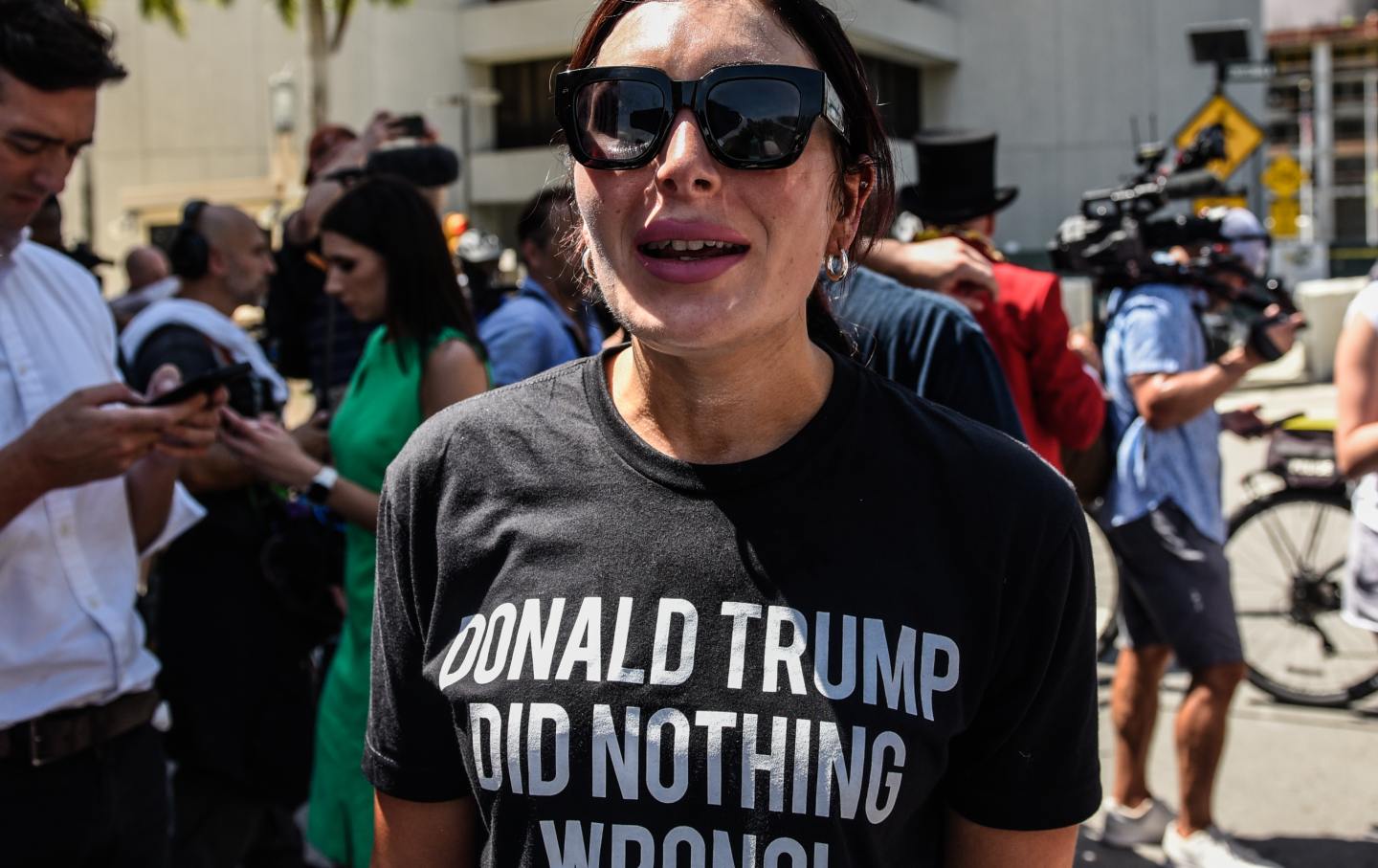The Mass Movement That Never Came
Four years after the “Summer of George Floyd,” the political climate has cooled.

On July 6, Sonya Massey was shot and killed in her home in Sangamon County, Illinois, by Sheriff’s Department Deputy Sean Grayson, after she had called 911 to report a possible prowler outside her house. Fifteen days after Massey’s killing, President Joe Biden announced his decision to bow out of the 2024 presidential race and throw his weight behind Vice President Kamala Harris as his replacement at the top of the Democratic ticket. The juxtaposition of these two moments is a rhetorical device, of course, but it is one that can shed some light on significant features of our current political situation, particularly regarding the imminent threat of an authoritarian putsch and what will be required to turn it back.
The fact that these two Black women’s lives—and concerns, no doubt—could hardly have been more different is just the low-hanging fruit. Categories like “Black women” are ultimately reifications, artificially treated as organic, self-conscious groups by pollsters, advertisers, and ideologues to compress much more complex social and historical realities in service to instrumental objectives. At a minimum, we should pause and reflect whenever we hear that “Black women,” or “non-college-educated white men,” or any other such census categories “want/think/prefer” anything in particular. And this is especially true in an election year, when such proclamations are made most breathlessly and recklessly: They are as likely to shape an electorate as to merely report on one.
By all accounts, Harris did not run a strong campaign for the Democratic nomination in 2020. Many commentators attribute the difference in her apparent effectiveness between then and now to her growth during her vice presidential term as a prominent actor on the national and international stage. That may well be true. It may also be that she’s like a relay runner who performs best when handed a lead. Either way, her voice is clearer now, and she exudes greater confidence and mastery of her circumstances, at least so far. It will be interesting to see how she holds up once the Republicans pull whatever they hope will be the most productive smears against her out of the sewer.
But there’s another difference between then and now that is especially important to consider. Harris’s 2020 campaign had a number of limitations in a crowded field that seemed largely centered on diluting the support that might go to Senator Bernie Sanders. But one difficulty Harris faced was that she initially sought to stake out a position as a “progressive,” based largely on her record as the San Francisco district attorney and California attorney general. However, she was flustered and hamstrung by pressure from the anti-racist nominal left to endorse some version of the call to defund the police. The pressure grew more intense in the environment that took hold throughout the country after George Floyd’s murder.
In that moment, we were given to believe that the street demonstrations, bombastic pronouncements, and dramatic disruptions of business as usual enacted by variants of Black Lives Matter and prison abolitionist groups were expressions of a larger and deeper national—even international—movement, a seismic political shift snowballing its way to becoming a major transformative force in American politics.
Many will recall the environment of moral panic and performative righteousness that defined that moment. This included the way that many of the Democratic presidential candidates and other party notables tried to one-up each other with pious gestures attesting to their embrace of the liturgy of race-reductionist anti-racism—even if most of them stopped short of embracing the clearly losing positions of defund, abolitionism, and real reparations.
And how did all that play out? Notwithstanding the bluster about a new revolutionary moment dawning, the most instructive outcomes of the “Summer of George Floyd” are that, between May 2020 and October 2022, Fortune 1000 companies committed or pledged $340 billion to “driving racial equity”—and that, several years later, there is still no mass movement in sight.
Black Lives Matter’s activity may have advanced the struggle for social justice by shining a light on patterns of police and vigilante killings of Black and other nonwhite people. That Derek Chauvin was convicted of murder for killing Floyd could be a marker of a long-overdue shift in the social norms that determine the perception of who deserves what kind of treatment at the hands of law enforcement. The outcome of Grayson’s trial for Sonya Massey’s murder could affirm that possibility. At the same time, the movement’s race-reductionist ideological commitment to demonstrate that “Blacks have it worse” obscures the deeper truth that the fundamental pattern of injustice in neoliberal policing—and criminal justice more broadly—is rooted in the suppression and containment of disreputable classes writ large.
It may be that the January 6 insurrection and a wider recognition of the genuine horrors of the Trumpist agenda have chastened neoliberal Democrats enough that they are now coming to grips with the reality that the path to defeating Trump and turning back the fascist/authoritarian juggernaut will require their running, openly and aggressively, on a program that asserts the priority of building a broad, working-class-based alliance and on vigorous proposals to address working-class needs and concerns in concrete ways that make sense to people.
So far, the Harris campaign appears to have recognized that imperative and has been acting accordingly. Harris’s campaign ads and speeches, if anything, increasingly seem to emphasize broad working-class issues, and her selection of Minnesota Governor Tim Walz as her running mate reinforces that sense. We’ll see how long that lasts: The Democrats have a history, going back to George McGovern, of leading with such gestures and then backing away under pressure from Wall Street. But for now, it may be possible to exhale and to stop compulsively checking the schedule for the last train out of Berlin.
We need your support
What’s at stake this November is the future of our democracy. Yet Nation readers know the fight for justice, equity, and peace doesn’t stop in November. Change doesn’t happen overnight. We need sustained, fearless journalism to advocate for bold ideas, expose corruption, defend our democracy, secure our bodily rights, promote peace, and protect the environment.
This month, we’re calling on you to give a monthly donation to support The Nation’s independent journalism. If you’ve read this far, I know you value our journalism that speaks truth to power in a way corporate-owned media never can. The most effective way to support The Nation is by becoming a monthly donor; this will provide us with a reliable funding base.
In the coming months, our writers will be working to bring you what you need to know—from John Nichols on the election, Elie Mystal on justice and injustice, Chris Lehmann’s reporting from inside the beltway, Joan Walsh with insightful political analysis, Jeet Heer’s crackling wit, and Amy Littlefield on the front lines of the fight for abortion access. For as little as $10 a month, you can empower our dedicated writers, editors, and fact checkers to report deeply on the most critical issues of our day.
Set up a monthly recurring donation today and join the committed community of readers who make our journalism possible for the long haul. For nearly 160 years, The Nation has stood for truth and justice—can you help us thrive for 160 more?
Onwards,
Katrina vanden Heuvel
Editorial Director and Publisher, The Nation








